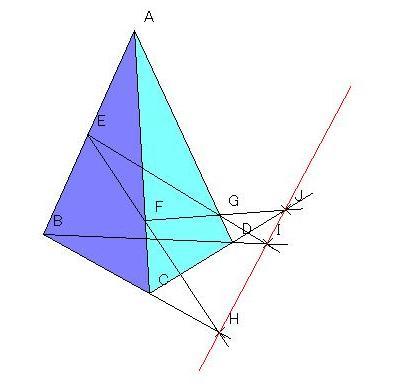結果
| 問題 | No.631 Noelちゃんと電車旅行 |
| コンテスト | |
| ユーザー |
 convexineq convexineq
|
| 提出日時 | 2021-03-03 19:24:42 |
| 言語 | PyPy3 (7.3.17) |
| 結果 |
AC
|
| 実行時間 | 626 ms / 2,000 ms |
| コード長 | 3,918 bytes |
| 記録 | |
| コンパイル時間 | 254 ms |
| コンパイル使用メモリ | 82,692 KB |
| 実行使用メモリ | 97,152 KB |
| 最終ジャッジ日時 | 2024-10-02 09:50:39 |
| 合計ジャッジ時間 | 10,659 ms |
|
ジャッジサーバーID (参考情報) |
judge1 / judge5 |
(要ログイン)
| ファイルパターン | 結果 |
|---|---|
| other | AC * 21 |
ソースコード
class LazySegmentTree:
def __init__(self, op_X, e_X, mapping, compose, id_M, N, array=None):
__slots__ = ["op_X","e_X","mapping","compose","id_M","N","log","N0","data","lazy"]
# それぞれ Xの演算、単位元、f(x), f\circ g, Xの恒等変換
self.e_X = e_X; self.op_X = op_X; self.mapping = mapping; self.compose = compose; self.id_M = id_M
self.N = N
self.log = (N-1).bit_length()
self.N0 = 1<<self.log
self.data = [e_X]*(2*self.N0)
self.lazy = [id_M]*self.N0
if array is not None:
assert N == len(array)
self.data[self.N0:self.N0+self.N] = array
for i in range(self.N0-1,0,-1): self.update(i)
# 1点更新
def point_set(self, p, x):
p += self.N0
for i in range(self.log, 0,-1):
self.push(p>>i)
self.data[p] = x
for i in range(1, self.log + 1):
self.update(p>>i)
# 1点取得
def point_get(self, p):
p += self.N0
for i in range(self.log, 0, -1):
self.push(p>>i)
return self.data[p]
# 半開区間[L,R)をopでまとめる
def prod(self, l, r):
if l == r: return self.e_X
l += self.N0
r += self.N0
for i in range(self.log, 0, -1):
if (l>>i)<<i != l:
self.push(l>>i)
if (r>>i)<<i != r:
self.push(r>>i)
sml = smr = self.e_X
while l < r:
if l & 1:
sml = self.op_X(sml, self.data[l])
l += 1
if r & 1:
r -= 1
smr = self.op_X(self.data[r], smr)
l >>= 1
r >>= 1
return self.op_X(sml, smr)
# 全体をopでまとめる
def all_prod(self): return self.data[1]
# 1点作用
def apply_point(self, p, f):
p += self.N0
for i in range(self.log, 0, -1):
self.push(p>>i)
self.data[p] = self.mapping(f, self.data[p])
for i in range(1, self.log + 1):
self.update(p>>i)
# 区間作用
def apply(self, l, r, f):
if l == r: return
l += self.N0
r += self.N0
for i in range(self.log, 0, -1):
if (l>>i)<<i != l:
self.push(l>>i)
if (r>>i)<<i != r:
self.push((r-1)>>i)
l2, r2 = l, r
while l < r:
if l & 1:
self.all_apply(l, f)
l += 1
if r & 1:
r -= 1
self.all_apply(r, f)
l >>= 1
r >>= 1
l, r = l2, r2
for i in range(1, self.log + 1):
if (l>>i)<<i != l:
self.update(l>>i)
if (r>>i)<<i != r:
self.update((r-1)>>i)
# 以下内部関数
def update(self, k):
self.data[k] = self.op_X(self.data[2*k], self.data[2*k+1])
def all_apply(self, k, f):
self.data[k] = self.mapping(f, self.data[k])
if k < self.N0:
self.lazy[k] = self.compose(f, self.lazy[k])
def push(self, k): #propagate と同じ
if self.lazy[k] is self.id_M: return
self.data[2*k ] = self.mapping(self.lazy[k], self.data[2*k])
self.data[2*k+1] = self.mapping(self.lazy[k], self.data[2*k+1])
if 2*k < self.N0:
self.lazy[2*k] = self.compose(self.lazy[k], self.lazy[2*k])
self.lazy[2*k+1] = self.compose(self.lazy[k], self.lazy[2*k+1])
self.lazy[k] = self.id_M
n = int(input())
*t, = map(int,input().split())
a = [0]*n
a[0] = 3*(n-1)
for i in range(1,n):
a[i] = t[i-1] + 3*(n-i)
from operator import add
seg = LazySegmentTree(op_X=max, e_X=0, mapping=add, compose=add, id_M=0, N=n, array=a)
m = int(input())
for _ in range(m):
L,R,D = map(int,input().split())
seg.apply(L,R+1,D)
print(seg.all_prod())
